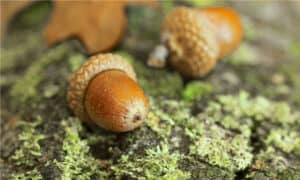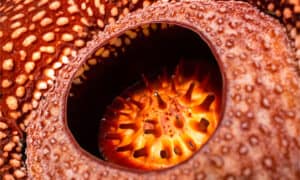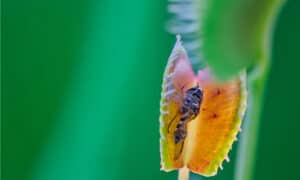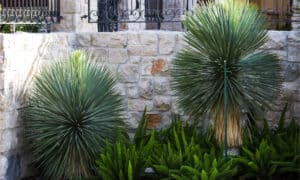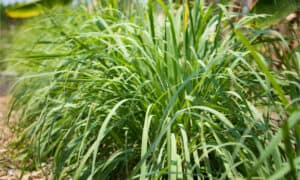Are There Any Plants That REALLY Keep Snakes Away?
@media (min-width: 481px) {
.mobile-top-content {
display: none;
}
}
#mobileTopContentCTACarouselControls { overflow: hidden; text-overflow: ellipsis; white-space: nowrap; }
.mobile-top-content .more { color: #fff; }
.mobile-top-content a { color: #fff; text-decoration: underline; }
.mobile-top-content a:hover { color: #fff; text-decoration: underline; }
@media (max-width: 480px) {
.mobile-top-content {
background-color: #06a10b;
color: #fff;
text-align: center;
/*height: 60px;
padding-top:5px;*/
font-size:80%;
/* display: block; */
margin: 0px -30px;
}
}
Key Points
- Killing snakes can be detrimental to the environment they inhabit.
- A better way to deter snakes from making their home in your garden is with certain plant species.
- These plants are thought to work because snakes do not like strong smells, which these plants or their fruits give off.
Although snakes are an important part of the ecosystem, some of them are venomous and many people do not like to have them around. This often leads people to kill or set fatal traps for snakes. However, killing snakes that pose no threat to you can be quite detrimental to the ecosystem. You could accidentally kill an endangered or critically endangered snake species.
A much better way to keep snakes out of your garden would be to make use of snake repelling plants. However, there are so many plants falsely claimed to keep snakes away that after several failed tries, most people find themselves asking “Are there any plants that really keep snakes away?”
Luckily, there are indeed plants that keep snakes away and this article takes a good look at 15 of them.
15 Snake Repelling Plants That Really Work
Kaffir-Limes
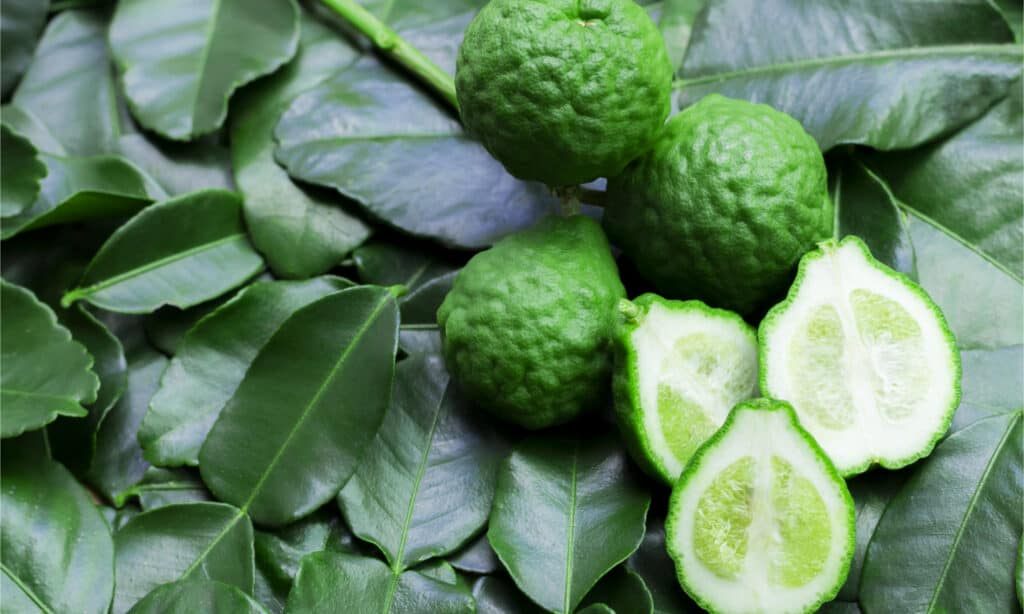
Worraket/Shutterstock.com
The citrus smell of kaffir-limes is a potent snake repellent. Its citrusy smell confuses snakes by interfering with their sense of smell. One great idea is to plant kaffir-lime trees around your home but you could also make use of kaffir-lime leaves, peels, juice, or its fruits to deter snakes. Simply leave them around your home or garden.
Mugwort
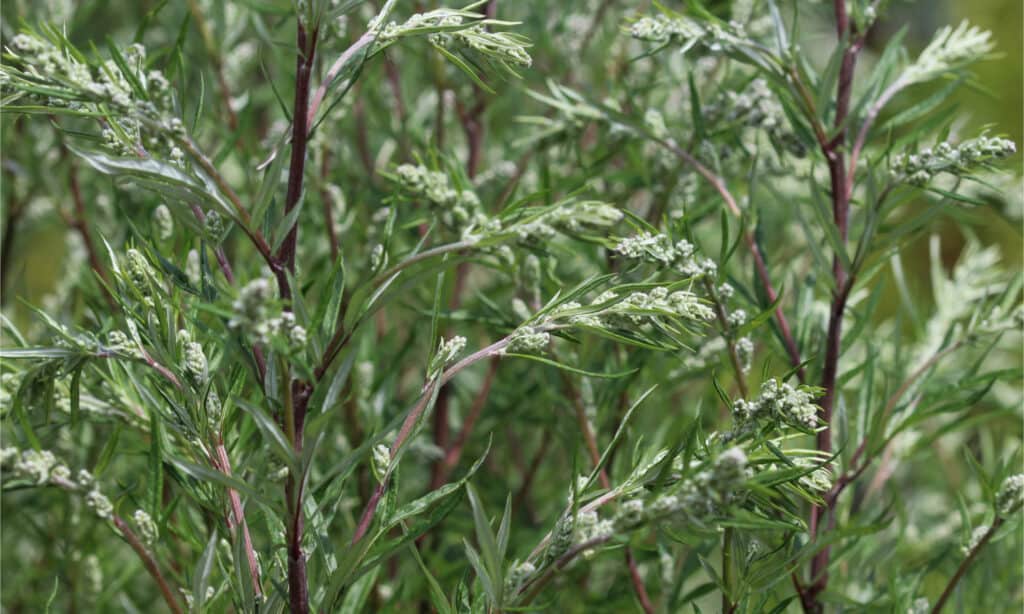
Mr. Meijer/Shutterstock.com
The mugwort plant is perennial. It gives off a strong aroma and has been used as a bitter-tasting tonic for many ages. Although mugwort is considered a weed, snakes do not like its presence and avoid it. The downside to this plant is that it is rather invasive and requires a lot of maintenance.
Garlic
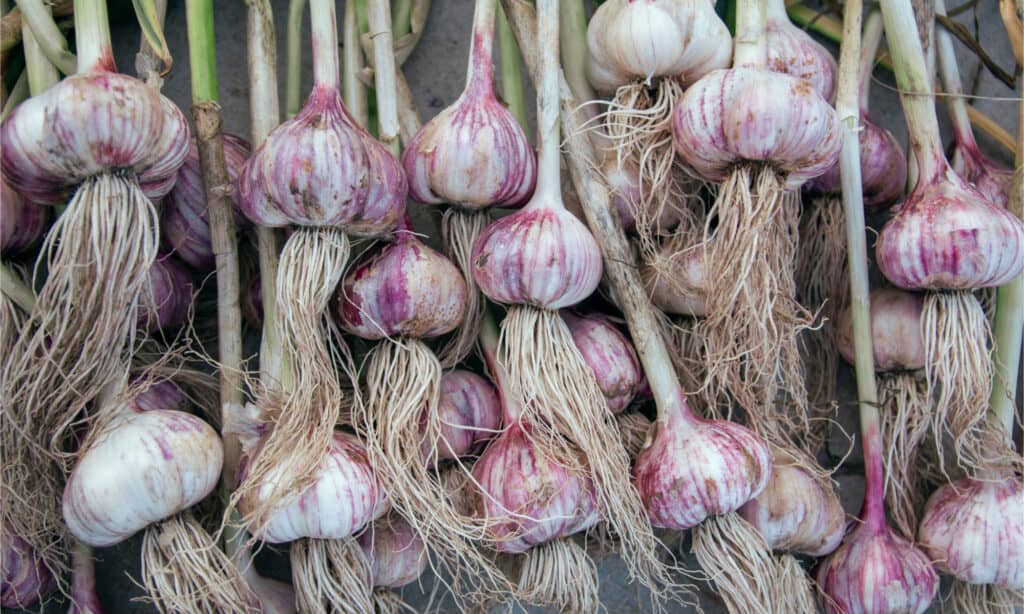
Allium Sativum/Shutterstock.com
Many garlic lovers do not know that their beloved ingredient has more than just one use. It contains sulfonic acid which gives off a strong smell and snakes do not like it. The good news is that you don’t actually need the garlic plants. Many DIYers swear that mixing crushed garlic with salt is very effective in keeping these reptiles away.
Society Garlic

SariMe/Shutterstock.com
Society garlic is a flowering plant that is indigenous to southern Africa. Apart from having strong snake-repelling qualities, this plant is useful for a host of other things. It is a beautiful plant and has a strong aesthetic appeal. It is also edible and has been known to help treat colds, headaches, and even coughs.
Onion
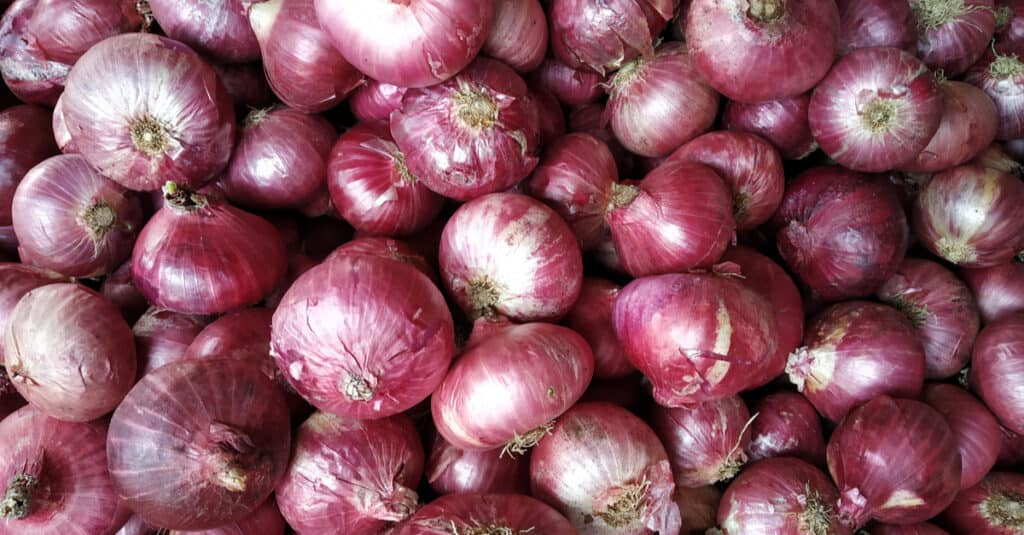
Godai Das/Shutterstock.com
Onions are known for their high content of sulfonic acid which is why they make us cry when we chop them. Since onions contain this acid, they are very effective snake repellents. A lot of gardeners suggest mixing crushed onions with salt and spraying it around your home.
Green Chiretta
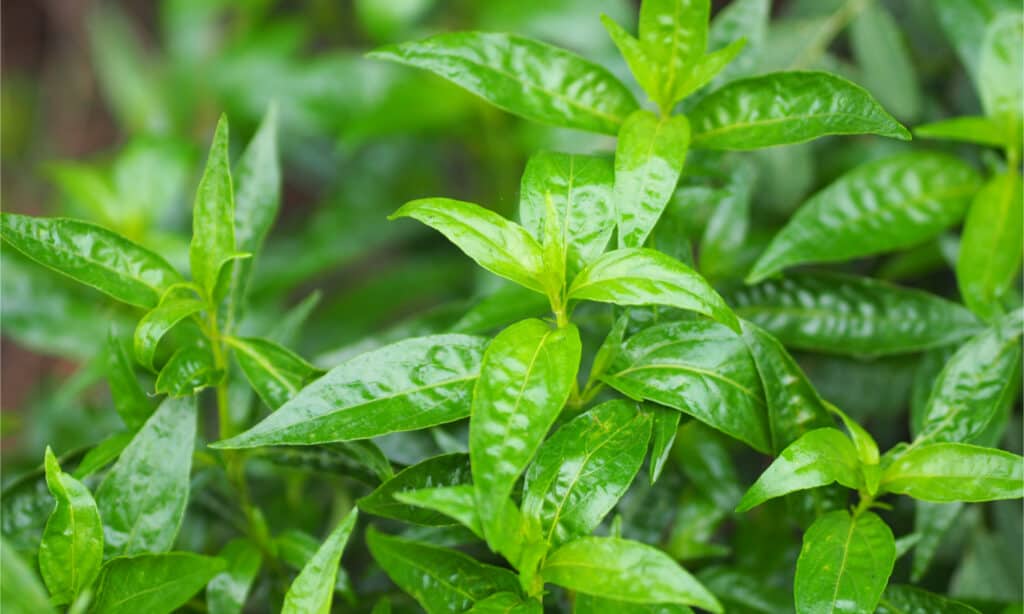
pakn/Shutterstock.com
The green chiretta plant, also known as the King of Bitters, has bitter-tasting roots that have a strong smell. They also have leaves that irritate snakes’ skin and cause swelling. Snakes avoid green chiretta, which makes them effective repellents.
Indian Snakeroot

santanu maity/Shutterstock.com
The Indian snakeroot is yet another plant said to repel snakes as well as treat snake bites. It is often called devil pepper and is used traditionally in India as an effective snake repellent.
Yucca
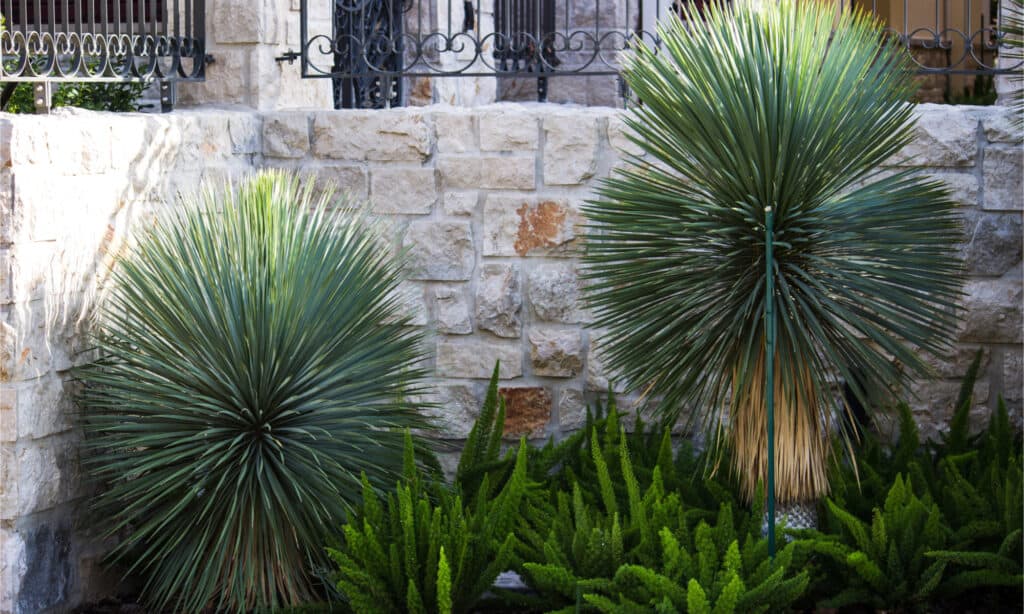
Zarko Prusac/Shutterstock.com
Yucca plants are an excellent choice if you’re looking to repel snakes. They have pointy and sharp leaves that snakes do not like – these leaves repel snakes on sight. However, these plants need quite a lot of space to grow. Yuccas are a feasible choice only if you have space.
Mother-in-Law’s Tongue
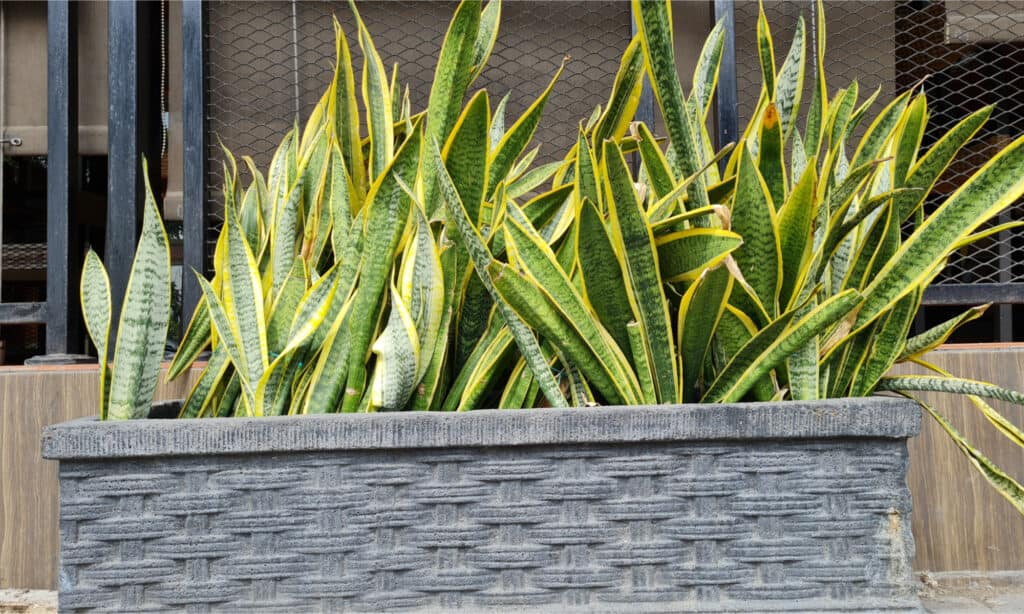
Andri wahyudi/Shutterstock.com
The Mother-in-Law’s Tongue gets its name from its long rootstocks which are sharp and pointy like the tongues of mothers-in-law. Snakes do not like the look of this plant and keep away from it, which makes them effective snake repellents.
Marigold
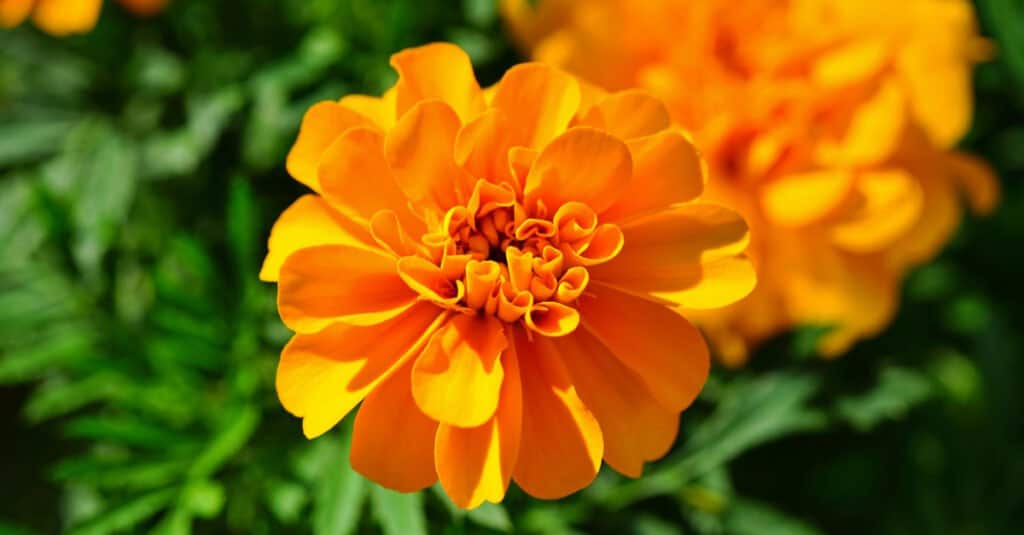
EQRoy/Shutterstock.com
Marigold flowers are bright and beautiful. Their roots are effective snake repellents due to their strong and fierce odor. They grow rather deeply and act as strong snake repellents.
West Indian Lemongrass
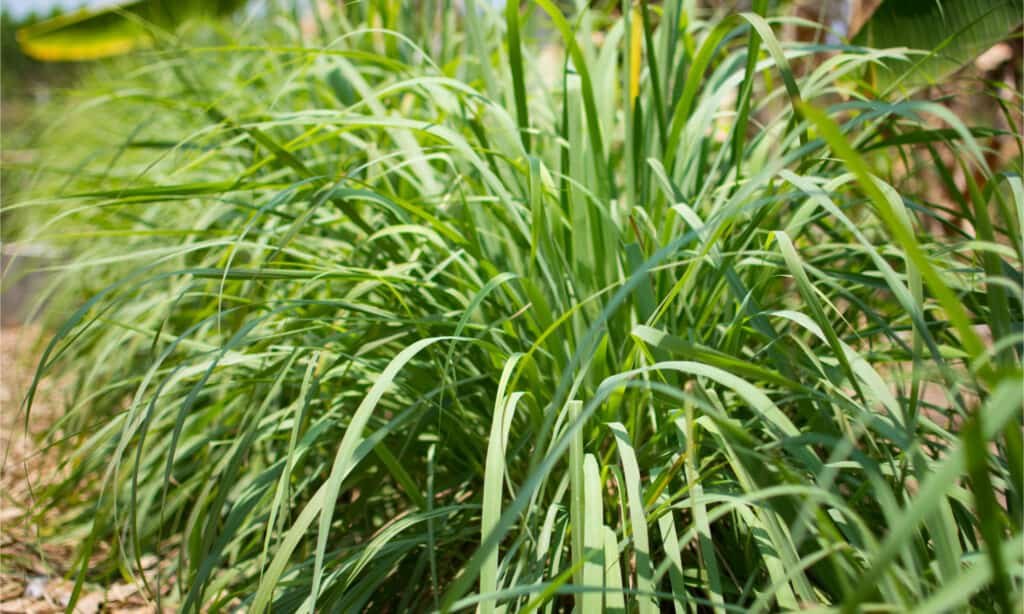
Nannie_iiuu/Shutterstock.com
The west Indian lemongrass is known for how little maintenance it requires as well as for its effectiveness in repelling snakes. It also repels bugs, ticks, and even mosquitoes.
Tobacco
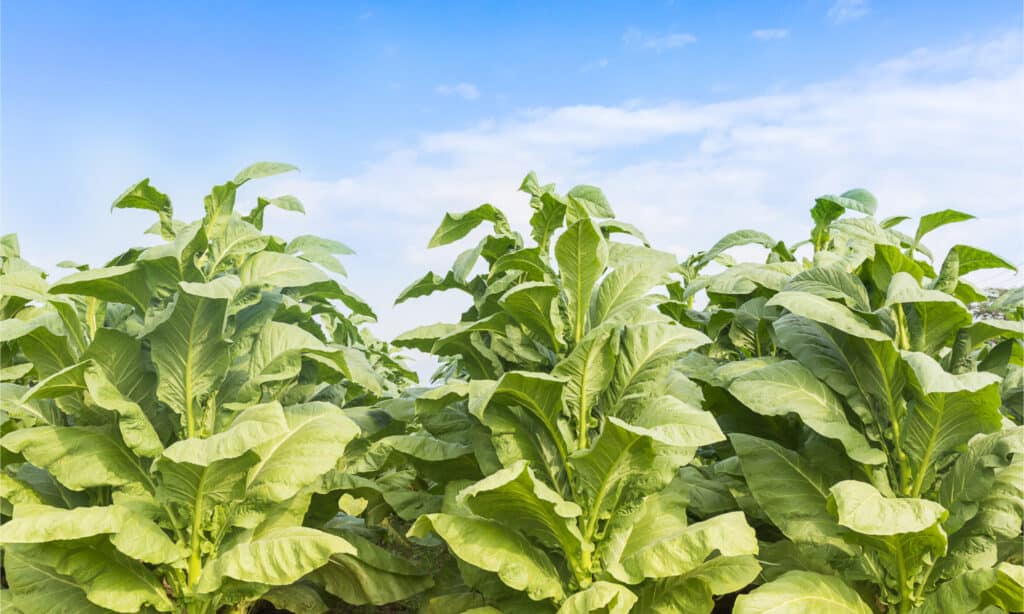
Singha Songsak P/Shutterstock.com
The tobacco plant has a strong smell that keeps snakes away. Luckily, it is easy to grow from the seeds and has really amazing flowers. The downside to tobacco is that it isn’t strong enough to do the job on its own, so, it needs to be planted with other snake repelling plants.
Clove Basil
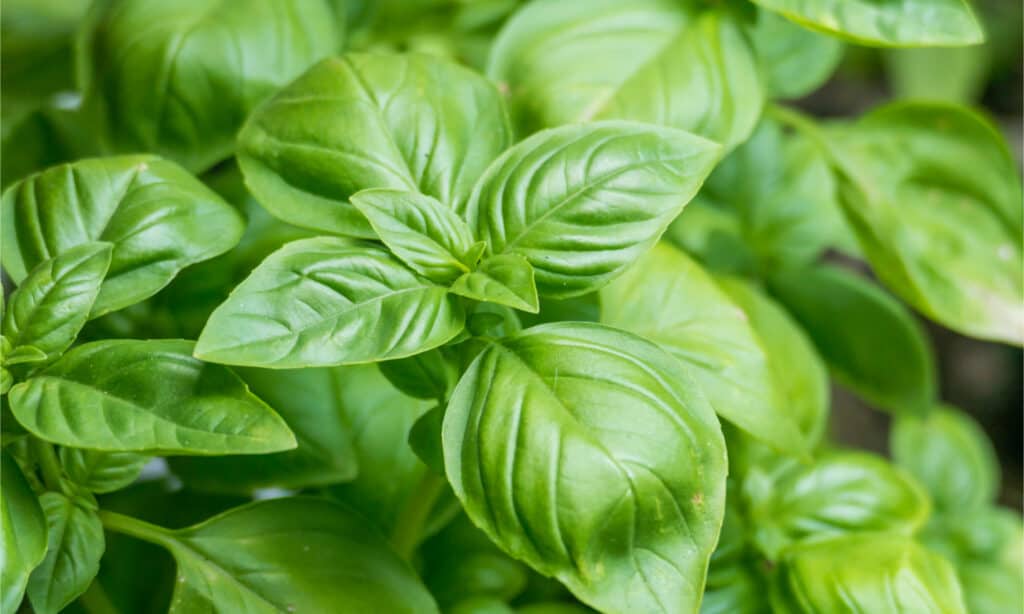
David Jalda/Shutterstock.com
Also known as the basil plant, the clove basil is a renowned herb with many health benefits. It is a rich source of zinc, iron, calcium, and vitamins A and C. Clove basils also give off a strong smell that snakes do not like. If you can’t plant basil, an alternative is to spray your surroundings with its essential oil to repel snakes.
Jimsonweed

Nick Pecker/Shutterstock.com
Jimson weed is known to be toxic to humans and livestock. Its tropane alkaloids which have hallucinogenic effects cause the plant to have a repulsive and foul odor. It also has sharp weeds that can injure a snake as it slithers along. For this reason, snakes avoid areas with jimsonweed. However, remember that due to its toxicity, it could endanger humans too.
Skunk Cabbage

Andrea J Smith/Shutterstock.com
Skunk cabbage is a popular favorite among herbalists. The plant is used for treating infections and is safe to be eaten in small amounts when cooked the right way. However, skunk cabbage is toxic to snakes so they stay away from areas with the plant.
Snake Benefits to Gardens
While many people do not like snakes due to misconceptions about “attacks” or because they don’t have legs, snakes are actually highly beneficial to gardens and yards in general. They act as natural pest control of small rodents, slugs, frogs, lizards, etc. Natural pest control helps keep the balance in your garden and prevents ravaging of your beautiful plants that you worked hard to grow.
Why Do These Plants Repel Snakes?
Generally, snakes hate strong smells. This includes the plants listed as well as vinegar, smoke, and other strong scents. This is because they smell and taste with their tongues and have a heightened sense of smell to make up for their bad eyesight. Without their super-smell, they would be terrible hunters.
Why Are My Snake Repelling Plants Not Working?
Although all plants listed here have been proven to repel snakes, most aren’t strong enough to do it on their own. It is more effective to combine more than three of these plants around your home. That way, your plants stand a higher chance of repelling snakes.
Summary: Snake-Deterring Plants
| Kaffir Limes |
| Mugwort |
| Garlic |
| Society Garlic |
| Onion |
| Green Chiretta |
| Indian Snakeroot |
| Yucca |
| Mother-in-Law’s Tongue |
| Marigold |
| West Indian Lemongrass |
| Tobacco |
| Clove Basil |
| Jimsonweed |
| Skunk Cabbage |
Up Next…
Snakes found in your garden or yard aren’t the only species in the United States. Find out what other species are found throughout the states:
- 8 Snakes that are Invasive in the United States (One Dangerous Snake is a “Hybrid”) – Invasive snake species are endangering native animals. Find out which ones are moving in.
- The 4 Main Types of Venomous Snakes in the United States – Unfortunately, there are venomous snakes in the states, 4 types to be exact.
- Discover the 10 Types of Water Snakes That Live in the United States – Land snakes are not the only snakes you’ll find hanging out in the U.S.
More from A-Z Animals
.more-snake-card-image { max-height:140px !important; }
@media (min-width: 481px) {
.mobile-top-content {
display: none;
}
}
#mobileTopContentCTACarouselControls { overflow: hidden; text-overflow: ellipsis; white-space: nowrap; }
.mobile-top-content .more { color: #fff; }
.mobile-top-content a { color: #fff; text-decoration: underline; }
.mobile-top-content a:hover { color: #fff; text-decoration: underline; }
@media (max-width: 480px) {
.mobile-top-content {
background-color: #06a10b;
color: #fff;
text-align: center;
/*height: 60px;
padding-top:5px;*/
font-size:80%;
/* display: block; */
margin: 0px -30px;
}
}
Key Points
- Killing snakes can be detrimental to the environment they inhabit.
- A better way to deter snakes from making their home in your garden is with certain plant species.
- These plants are thought to work because snakes do not like strong smells, which these plants or their fruits give off.
Although snakes are an important part of the ecosystem, some of them are venomous and many people do not like to have them around. This often leads people to kill or set fatal traps for snakes. However, killing snakes that pose no threat to you can be quite detrimental to the ecosystem. You could accidentally kill an endangered or critically endangered snake species.
A much better way to keep snakes out of your garden would be to make use of snake repelling plants. However, there are so many plants falsely claimed to keep snakes away that after several failed tries, most people find themselves asking “Are there any plants that really keep snakes away?”
Luckily, there are indeed plants that keep snakes away and this article takes a good look at 15 of them.
15 Snake Repelling Plants That Really Work
Kaffir-Limes

Worraket/Shutterstock.com
The citrus smell of kaffir-limes is a potent snake repellent. Its citrusy smell confuses snakes by interfering with their sense of smell. One great idea is to plant kaffir-lime trees around your home but you could also make use of kaffir-lime leaves, peels, juice, or its fruits to deter snakes. Simply leave them around your home or garden.
Mugwort

Mr. Meijer/Shutterstock.com
The mugwort plant is perennial. It gives off a strong aroma and has been used as a bitter-tasting tonic for many ages. Although mugwort is considered a weed, snakes do not like its presence and avoid it. The downside to this plant is that it is rather invasive and requires a lot of maintenance.
Garlic

Allium Sativum/Shutterstock.com
Many garlic lovers do not know that their beloved ingredient has more than just one use. It contains sulfonic acid which gives off a strong smell and snakes do not like it. The good news is that you don’t actually need the garlic plants. Many DIYers swear that mixing crushed garlic with salt is very effective in keeping these reptiles away.
Society Garlic

SariMe/Shutterstock.com
Society garlic is a flowering plant that is indigenous to southern Africa. Apart from having strong snake-repelling qualities, this plant is useful for a host of other things. It is a beautiful plant and has a strong aesthetic appeal. It is also edible and has been known to help treat colds, headaches, and even coughs.
Onion

Godai Das/Shutterstock.com
Onions are known for their high content of sulfonic acid which is why they make us cry when we chop them. Since onions contain this acid, they are very effective snake repellents. A lot of gardeners suggest mixing crushed onions with salt and spraying it around your home.
Green Chiretta

pakn/Shutterstock.com
The green chiretta plant, also known as the King of Bitters, has bitter-tasting roots that have a strong smell. They also have leaves that irritate snakes’ skin and cause swelling. Snakes avoid green chiretta, which makes them effective repellents.
Indian Snakeroot

santanu maity/Shutterstock.com
The Indian snakeroot is yet another plant said to repel snakes as well as treat snake bites. It is often called devil pepper and is used traditionally in India as an effective snake repellent.
Yucca

Zarko Prusac/Shutterstock.com
Yucca plants are an excellent choice if you’re looking to repel snakes. They have pointy and sharp leaves that snakes do not like – these leaves repel snakes on sight. However, these plants need quite a lot of space to grow. Yuccas are a feasible choice only if you have space.
Mother-in-Law’s Tongue

Andri wahyudi/Shutterstock.com
The Mother-in-Law’s Tongue gets its name from its long rootstocks which are sharp and pointy like the tongues of mothers-in-law. Snakes do not like the look of this plant and keep away from it, which makes them effective snake repellents.
Marigold

EQRoy/Shutterstock.com
Marigold flowers are bright and beautiful. Their roots are effective snake repellents due to their strong and fierce odor. They grow rather deeply and act as strong snake repellents.
West Indian Lemongrass

Nannie_iiuu/Shutterstock.com
The west Indian lemongrass is known for how little maintenance it requires as well as for its effectiveness in repelling snakes. It also repels bugs, ticks, and even mosquitoes.
Tobacco

Singha Songsak P/Shutterstock.com
The tobacco plant has a strong smell that keeps snakes away. Luckily, it is easy to grow from the seeds and has really amazing flowers. The downside to tobacco is that it isn’t strong enough to do the job on its own, so, it needs to be planted with other snake repelling plants.
Clove Basil

David Jalda/Shutterstock.com
Also known as the basil plant, the clove basil is a renowned herb with many health benefits. It is a rich source of zinc, iron, calcium, and vitamins A and C. Clove basils also give off a strong smell that snakes do not like. If you can’t plant basil, an alternative is to spray your surroundings with its essential oil to repel snakes.
Jimsonweed

Nick Pecker/Shutterstock.com
Jimson weed is known to be toxic to humans and livestock. Its tropane alkaloids which have hallucinogenic effects cause the plant to have a repulsive and foul odor. It also has sharp weeds that can injure a snake as it slithers along. For this reason, snakes avoid areas with jimsonweed. However, remember that due to its toxicity, it could endanger humans too.
Skunk Cabbage

Andrea J Smith/Shutterstock.com
Skunk cabbage is a popular favorite among herbalists. The plant is used for treating infections and is safe to be eaten in small amounts when cooked the right way. However, skunk cabbage is toxic to snakes so they stay away from areas with the plant.
Snake Benefits to Gardens
While many people do not like snakes due to misconceptions about “attacks” or because they don’t have legs, snakes are actually highly beneficial to gardens and yards in general. They act as natural pest control of small rodents, slugs, frogs, lizards, etc. Natural pest control helps keep the balance in your garden and prevents ravaging of your beautiful plants that you worked hard to grow.
Why Do These Plants Repel Snakes?
Generally, snakes hate strong smells. This includes the plants listed as well as vinegar, smoke, and other strong scents. This is because they smell and taste with their tongues and have a heightened sense of smell to make up for their bad eyesight. Without their super-smell, they would be terrible hunters.
Why Are My Snake Repelling Plants Not Working?
Although all plants listed here have been proven to repel snakes, most aren’t strong enough to do it on their own. It is more effective to combine more than three of these plants around your home. That way, your plants stand a higher chance of repelling snakes.
Summary: Snake-Deterring Plants
| Kaffir Limes |
| Mugwort |
| Garlic |
| Society Garlic |
| Onion |
| Green Chiretta |
| Indian Snakeroot |
| Yucca |
| Mother-in-Law’s Tongue |
| Marigold |
| West Indian Lemongrass |
| Tobacco |
| Clove Basil |
| Jimsonweed |
| Skunk Cabbage |
Up Next…
Snakes found in your garden or yard aren’t the only species in the United States. Find out what other species are found throughout the states:
- 8 Snakes that are Invasive in the United States (One Dangerous Snake is a “Hybrid”) – Invasive snake species are endangering native animals. Find out which ones are moving in.
- The 4 Main Types of Venomous Snakes in the United States – Unfortunately, there are venomous snakes in the states, 4 types to be exact.
- Discover the 10 Types of Water Snakes That Live in the United States – Land snakes are not the only snakes you’ll find hanging out in the U.S.

